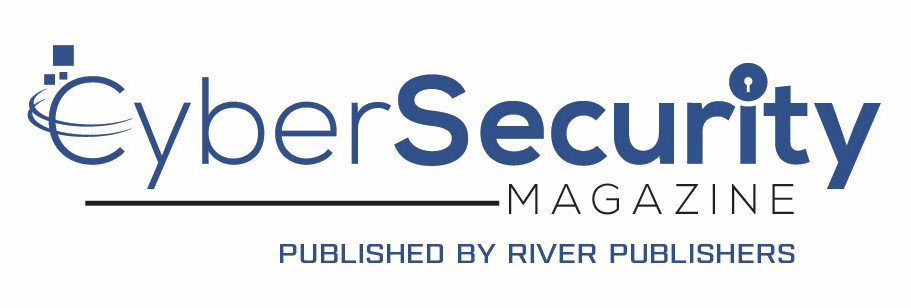Why every organisation needs a CISO on board
In today’s hyper-interconnected world, managing enterprise digital and technical risk has become a mission-critical priority. But protecting information, people and assets from cyber-attacks is just the start.
Alongside managing the challenges posed by the pursuit of digital and cloud-first transformation, organisations must also comply with increasingly stringent regulatory demands relating to the security and integrity of their networks and data.
Given the rapidly evolving nature of cyber security threats and the inevitability of attacks, it’s surprising that many large enterprises continue to operate without a dedicated Chief Information Security Officer (CISO) to oversee these risks.
The absence of a CISO can lead to gaps in an organisation’s cyber security posture and potentially risks the implementation of security measures that are misaligned with business and regulatory needs. It also leaves the C-suite in the dark about potential liabilities that could lead to companies and their senior officers being exposed to sanctions and litigation risk.
With governments around the world unleashing a tsunami of new laws, regulations and policies, operating without a CISO is becoming an unwise and risky approach to adopt.
New regulations put leaders in the spotlight
The EU’s Cyber Resilience Act and the new US Securities and Exchange Commission (SEC) incident reporting requirements highlight the importance of staying ahead of the game when it comes to safeguarding digital assets.
For example, the SEC’s new cyber security rules now require public companies to disclose material cyber security incidents and report on their processes for managing cyber risk. Crucially, the SEC obliges organisations to describe the board of directors’ oversight of risks from cyber security threats and their role and expertise in assessing and managing material risks.
With cyber security established as a critical pillar for organisational integrity and cyber governance becoming a central tenet of corporate stewardship, leaving cyber security to the IT department is no longer enough. This is especially true when the new SEC rules also require details on incident materiality, such as financial and reputation impacts – something that goes well beyond the expertise of security teams and highlights the importance of having a CISO in place to ensure the enterprise can meet these responsibilities.
In a world where cyber risks are constantly evolving, good governance requires the wide-ranging leadership capabilities a CISO delivers. Responsible for connecting technological capabilities with broader corporate objectives, the CISO builds security programmes from the ground up that are designed to deliver business compliance and ensure transparency and accountability.
More than just security experts, CISOs are also responsible for ensuring that cyber security policies and programmes are appropriately aligned with business goals and that security measures do not impede business operations.
Managing business risk
Beyond addressing important and growing regulatory requirements, having a dedicated CISO generates a number of benefits from a business and organisational risk perspective.
Responsible for aligning security initiatives, ensuring resources are allocated efficiently, identifying potential vulnerabilities and prioritising remediation efforts based on risk assessment, CISOs ensure enterprises are able to stay abreast of today’s rapidly changing threat environment. This includes proactively adapting security approaches to address the risks posed by the AI-driven evolution of cybercrime.
Providing the senior security leadership that modern enterprises now require, CISOs ensure that non-technical business leaders understand the opportunities and risks they face, can make informed decisions on information security risks, and are able to drive innovative business strategies without exposing the enterprise to unnecessary risk.
As a key strategic partner to senior business leaders, the CISO ensures that the organisation keeps up with increasingly complex compliance requirements and avoids costly mistakes. This includes enabling security strategies that minimise potential losses from data breaches, regulatory fines and remediation costs and ensuring that disaster recovery capabilities are in place to ensure operations continue securely, even when disruptive events occur.
Importantly, they are also responsible for managing the oversight of vendors and third parties to ensure that these supply chain relationships do not introduce undue cyber risk.
Managing reputational risk
With extensive skillsets in IT infrastructure, data governance frameworks, risk management practices and regulatory landscapes, today’s CISOs have moved well beyond an exclusively technical remit.
Experienced at undertaking risk assessments that consider people, processes and information security technologies, the role of the CISO is pivotal for enterprises that need to navigate the potential cyber security pitfalls that could have a significant reputational impact.
Without strong and effective security leadership, enterprises risk exposing themselves to potential cyber incidents that undermine brand trust. With customers and consumers now evaluating privacy and cyber security reputations when deciding who to entrust with their data, a CISO-led programme demonstrates a firm commitment to earning this confidence.
The intersection of cyber security and reputational risk also has significant resonance where investor relations are concerned. Today’s investors now explicitly seek assurance that companies have adequate governance structures and measures in place to deal with cyber security challenges.
Skilled CISOs can help address this heightened investor scrutiny around cyber preparedness by providing strong evidence of cyber-resilience and regulatory compliance. They also understand how a transparent, quick and empathetic response is essential for retaining stakeholder loyalty whenever cyber incidents inevitably occur.
Managing information security and risk and driving enterprise performance
Bridging the gap between the technicality of cyber security and the strategic imperatives of executive leadership and commercial priorities, the business case for investing in a dedicated CISO role has never been stronger.
By elevating cyber security strategies from isolated silos into integrated programmes that support fundamental operating capabilities, they are becoming indispensable to the way modern organisations operate and succeed.
As cyber threats continue to proliferate in an increasingly complex risk landscape, the CISO plays a crucial role in promoting security awareness and ensuring the enterprise adopts a strategic, tailored, and forward-thinking approach to cyber security.
With expectations around cyber governance changing fast, enterprises will need to adapt and evolve to ensure they fortify their cyber defences and governance practices in line with evolving regulatory frameworks and rules.
For enterprises that want to take a more proactive stance on cyber security and ensure that cyber risks are appropriately managed to minimise legal, financial, operational and reputational consequences, having a dedicated CISO on board will be a must-have.


